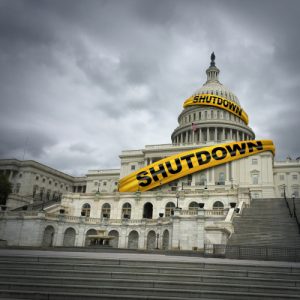
Bipartisan legislation introduced on Sept. 14 by U.S. Sen. Bill Cassidy (R-LA) would make federal government shutdowns a thing of the past.
“Louisianans are recovering in the aftermath of Hurricane Ida, and the last thing we need is for the government to shut down and not be in a position to help those trying to recover,” Sen. Cassidy said. “This is a commonsense solution to make sure our government continues functioning.”
Sen. Cassidy is one of nine original cosponsors, including U.S. Sens. Joni Ernst (R-IA), Steve Daines (R-MT), and Maggie Hassan (D-NH), who joined bill sponsor U.S. Sen. James Lankford (R-OK) to propose the Prevent Government Shutdowns Act of 2021, S. 2727.
If enacted, the bill would require that if appropriations work is not done on time, all members of Congress must stay in Washington, D.C., and work until the spending bills are signed by the president to prevent a government-wide shutdown, according to a bill summary provided by Sen. Cassidy’s staff.
Upon a lapse in government funding, S. 2727 would implement an automatic continuing resolution, on rolling 14-day periods, based on the most current spending levels enacted in the previous fiscal year to prevent such a shutdown, the summary says, and during the covered period of an automatic continuing resolution, several restrictions would be put in place.
For instance, taxpayer-funded travel allowances would not be allowed for official business for White House OMB staff and leadership, as well as members of Congress and their committee and personal staff, according to the senator’s summary.
Additionally, among several other provisions, the legislation would not allow votes in Congress unless they pertain to passage of the appropriations bills or mandatory quorum calls in the U.S. Senate, the information says.
To date, the measure has garnered support from the Committee for a Responsible Federal Budget, the Council for Citizens Against Government Waste, FreedomWorks, the National Taxpayers Union, Americans for Prosperity, Americans for Tax Reform, and the American Conservative Union.



